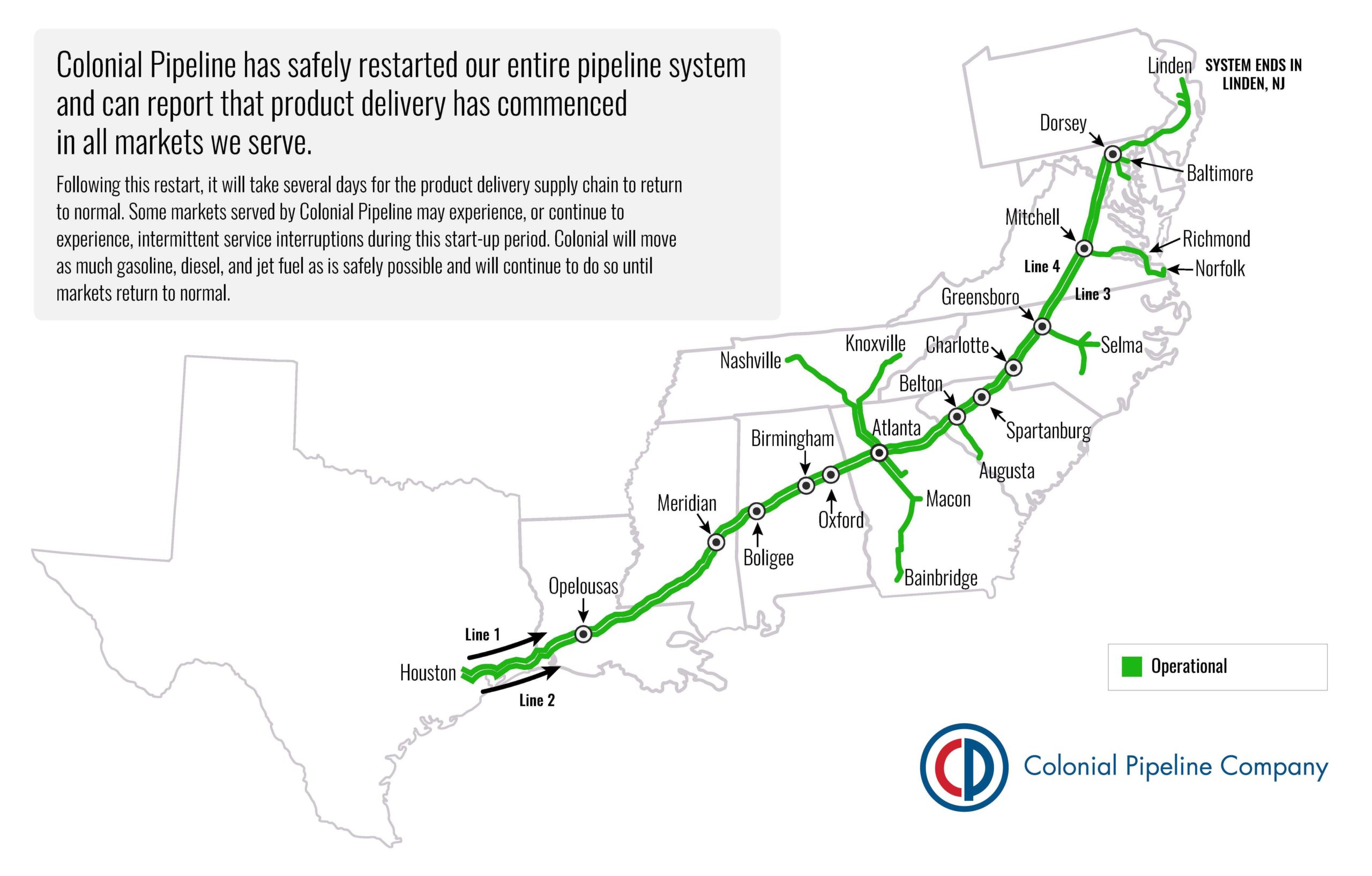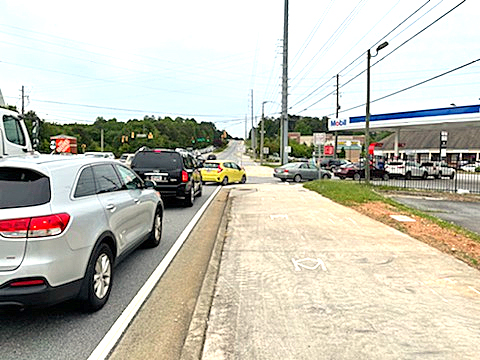A series of messages was posted at the official Twitter account of the Consumer Product Safety Commission of the United States to warn of the dangers of filling unapproved containers — including plastic bags — with gasoline and other flammable liquids.
Do Not Fill Plastic Bags With Gasoline.
The warnings came as panic spread pertaining to the temporary disruption of the pipeline which is operated by Colonial Pipeline Company.
The warnings are as follows:
Do not fill plastic bags with gasoline.
— US Consumer Product Safety Commission (@USCPSC) May 12, 2021
“Do not fill plastic bags with gasoline.”
Use only containers approved for fuel.
— US Consumer Product Safety Commission (@USCPSC) May 12, 2021
“Use only containers approved for fuel.”
Follow the gas canister manufacturer instructions for storing and transporting gasoline.
— US Consumer Product Safety Commission (@USCPSC) May 12, 2021
“Follow the gas canister manufacturer instructions for storing and transporting gasoline.”
When using a gas canister, never pour gasoline over or near an open flame.
— US Consumer Product Safety Commission (@USCPSC) May 12, 2021
“When using a gas canister, never pour gasoline over or near an open flame.”
Flame jetting is a sudden and possibly violent flash fire that can occur when pouring flammable liquids from a container over an exposed flame or other ignition source.
NEVER pour flammable liquids from a container over an exposed flame. pic.twitter.com/HoVuWf1gmt
— US Consumer Product Safety Commission (@USCPSC) May 12, 2021
“Flame jetting is a sudden and possibly violent flash fire that can occur when pouring flammable liquids from a container over an exposed flame or other ignition source. NEVER pour flammable liquids from a container over an exposed flame.”
We know this sounds simple, but when people get desperate they stop thinking clearly. They take risks that can have deadly consequences. If you know someone who is thinking about bringing a container not meant for fuel to get gas, please let them know it's dangerous.
— US Consumer Product Safety Commission (@USCPSC) May 12, 2021
“We know this sounds simple, but when people get desperate they stop thinking clearly. They take risks that can have deadly consequences. If you know someone who is thinking about bringing a container not meant for fuel to get gas, please let them know it’s dangerous.”
Sometimes when we put out a safety message like this people use it as a way to look down on others. We ask that instead you use this as an opportunity to reflect on safety in your own life.
— US Consumer Product Safety Commission (@USCPSC) May 12, 2021
“Sometimes when we put out a safety message like this people use it as a way to look down on others. We ask that instead you use this as an opportunity to reflect on safety in your own life.”
What May Have Prompted the Warnings
The examples of actions which are shown in the following series of messages which were posted on Twitter — whether fabricated or authentic — may have prompted the aforementioned warnings.
https://twitter.com/lisamikolFL/status/1392512397429067781
https://twitter.com/HotDepressedDad/status/1392485300518195201
What about storage totes? pic.twitter.com/3vhqNKCkx4
— David Vineyard (@DavidVineyard9) May 12, 2021
this is how i do it, right? pic.twitter.com/tTJMOKI1FQ
— j (@kabivanoff) May 12, 2021
What Prompted the Panic
A cybersecurity attack — which involved ransomware — prompted the operator of a major pipeline of refined fuel in the United States to halt all operations of its pipeline. After learning of the attack on Friday, May 7, 2021, Colonial Pipeline Company quickly and proactively took certain systems offline to contain the threat, which temporarily halted all pipeline operations and affected some of its information technology systems.
With approximately 5,500 miles of pipe, Colonial Pipeline is the largest pipeline of refined products in the United States, with greater than 100 million gallons of fuel — or 2.5 million barrels per day — transported daily to meet the energy needs of consumers in 14 states from Houston in Texas to Linden in New Jersey; and the pipeline supplies approximately 45 percent of all fuel consumed on the east coast of the United States while providing refined products to greater than 50 million Americans…
…but the pipeline also supplies refined jet fuel to seven international airports which serve the greater metropolitan areas of Atlanta, Nashville, Charlotte, Greensboro, Raleigh-Durham, Washington Dulles, and Baltimore-Washington — in addition to airports in the greater metropolitan area of New York, which are served via connections with Buckeye Pipeline.
Operations of the pipeline resumed on Wednesday, May 10, 2021 — but that was too late, as panic had already ensued with long lines at gasoline stations, which increased demand and caused prices to spike, which fueled more demand, which…
…yeah…you get the idea.
As of yesterday, Thursday, May 14, 2021 at 4:40 in the afternoon Eastern Daylight Time, the entire pipeline system has been restarted and product delivery has commenced to all markets which are served by Colonial Pipeline Company, according to this official statement.
Summary
“I would not be surprised if two aspects of panic take over: that owners and operators of service stations artificially increase the price of fuel significantly; and that customers start hoarding gasoline, diesel, and other fuel items” is what I prophetically wrote in this article on Monday, May 10, 2021, as both had happened since that article was posted. “This has been a common theme which was learned from the pandemic, with shortages of toilet paper, coins, and ketchup as three of many examples.”
I know, I know. Neither you or I need to heed a warning which should be common sense…
…so let us just shake our heads in disbelief together for a moment at the reasons why the warnings were even necessary…
…but at this point, I would not be surprised if someone from a state where he or she cannot find fuel travels to another state by airplane, fills up plastic bags with gasoline, and attempts to travel back home by either carrying the bags of gasoline aboard the airplane — or checking them…

…and speaking of traveling via airplane, you might want to consider waiting another day or two before traveling to the states which were affected by the refined fuel shortages until all operations are back to normal.
Photograph ©2021 by Brian Cohen.

